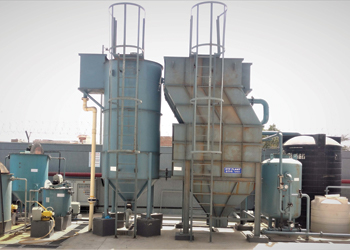
-
-
CALL US NOW
+91 78600 24711

This is where an Effluent Treatment Plant (ETP) comes into play. Every industry, regardless of size, needs an efficient ETP to manage wastewater effectively, ensure compliance with regulations, and contribute to a healthier environment.
Thermodynamic Services understands the importance of clean and sustainable industrial practices. As a leading provider of ETP Plants for industrial use in Kanpur, we are committed to helping businesses manage their wastewater efficiently. Let’s explore why an ETP Plant is essential for every industry.
One of the most significant reasons to invest in an ETP Plant is to protect the environment. Industries produce various pollutants, including chemicals, heavy metals, and organic waste, which can harm ecosystems if released untreated.
Fact: Untreated industrial wastewater is a leading cause of water pollution, contributing to 70% of the contamination in rivers and lakes worldwide.
Governments and environmental agencies have strict regulations regarding wastewater discharge. Non-compliance can lead to hefty fines, legal issues, and even the shutdown of industrial operations.
Data: In India, industries are required to treat their wastewater to meet the standards set by the Central Pollution Control Board (CPCB). Failure to comply can result in fines ranging from ₹50,000 to ₹500,000, depending on the severity of the violation.
Investing in an ETP Plant may seem like a significant expense, but it can lead to substantial cost savings in the long run.
Statistic: Industries that invest in ETP Plants report a 30% reduction in water procurement costs due to recycling and reuse of treated water.
In today’s market, consumers and stakeholders increasingly favor companies that prioritize sustainability and corporate responsibility. An efficient ETP Plant is a crucial part of your company’s sustainability strategy.
Fact: Companies that adopt sustainable practices, including efficient wastewater management, experience a 20% increase in customer loyalty and brand trust.
Untreated industrial wastewater poses significant health risks to both workers and the surrounding communities. Installing an ETP Plant ensures that your operations do not compromise public health.
Statistic: The World Health Organization (WHO) estimates that over 2 billion people worldwide lack access to safe drinking water, with industrial pollution being a significant contributor to this crisis.
An efficient Effluent Treatment Plant is not just a regulatory requirement; it is a crucial component of responsible industrial operations. By investing in an ETP Plant, you protect the environment, ensure compliance with regulations, achieve cost savings, promote sustainability, and safeguard public health.
Thermodynamic Services is your trusted partner in this journey. As a leading provider of ETP Plants for industrial use in Kanpur, we offer customized solutions that meet your specific needs, ensuring that your wastewater management is both effective and sustainable.
Don’t wait until it’s too late. Take the proactive step towards a cleaner, safer, and more sustainable future for your industry. Contact Thermodynamic Services today to learn more about how we can help you implement an efficient ETP Plant and make a positive impact on your business and the environment.